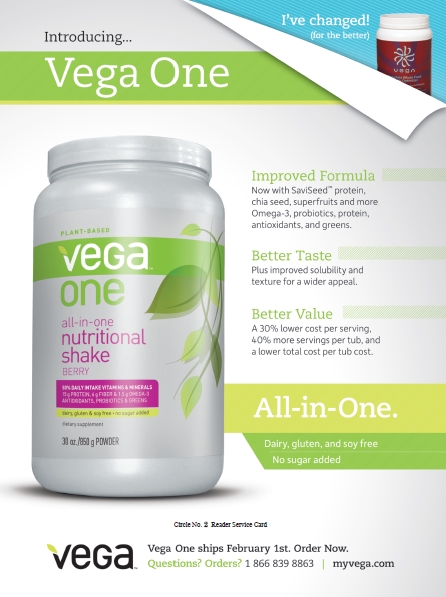Giving seminars around the country, I ask natural products retailers to tell me why they think it is important to tell the story of their store. “Because we care,” says one. “Because we’re knowledgeable,” answers another. “Because we help,” offers yet a third. All true. But the most important reason in my view is, if you don’t tell the story of your store—what you do, and why and how you do it—the world will gladly fill in the vacuum left by your silence.
Silence Creates a Vacuum
And that silence will be filled with myths, stereotypes and clichés about health food stores. None of this is surprising; you’ve heard it all before. Natural foods stores are inconveniently located. Natural foods stores have a limited selection. Natural foods stores are confusing and weird. I don’t understand or know how to use the products. The foods are expensive and don’t taste good. The products aren’t regulated. Are they safe? The stores are small, dingy and smell funny. The people in natural foods stores are over-baked hippies from the ‘70s.
Control Your Message
Rather than let these damaging myths and narratives persist, it is much better to develop your own story. First, put yourself in the shoes of your customers, and view the myth or objection to shopping with you from their eyes. Let’s get started.
Inconvenient location. If your location is typical of natural products stores, this objection to shopping is true. The customer is probably thinking: “I don’t have time to make a special trip.” While you can’t easily change the location of your store, you can substitute a benefit of shopping with you that overcomes this objection. For example, “You’ll love our friendly, relaxed atmosphere, and the personal attention we give you every time you shop with us.”
Limited selection. Truth is, NO retail store has everything for everyone. One-stop shopping is a myth. People need to—and in fact want to—shop multiple stores, and have continued to do so through the current recession. Instead of feeling inferior to larger stores, focus on the quality of your selection. You are a trusted editor, and only the finest products get to live on your shelves. “Our products help keep you and your family healthy.” If you have a prepared foods program, use this angle: “It’s four o’clock. Don’t know what to make for dinner? We can help!”
Confusing stores, weird products. Imagine walking into a food store halfway around the world, where the shelving and lighting were odd, the product packaging strange and the writing on the labels in a foreign language. First-time shoppers to your store probably experience something similar. Let your message calm these fears. “We help take the guesswork out of wellness!”
Expensive. This is a pocketbook issue, and your potential customer may be thinking, “I can’t afford to shop in a natural foods store.” First, if you have a food-oriented store, with a good bulk foods department, you can suggest economizing recipes, cooking from scratch with affordable grains and beans, and buying fresh produce in season, when it’s most plentiful and affordable.
For your supplements department, focus on the money-saving aspect of preventive health and wellness—an ounce of prevention is worth a pound of cure. “A well-balanced diet and lifestyle, with the right nutritional supplements, helps keep you and your family well, at work and school, and out of bed and the doctor’s office. Our knowledgeable team is waiting to show you how.”
Bad taste. If you’ve been around natural foods since the ‘70s, you know the sacrifices in taste we had to make for good health. No more. Most natural products today are truly delicious. The key is to get new customers to try them. There’s no better way to do this than to offer lots of free samples and product demonstrations. And it’s all the better if you can do these demonstrations outside your store; at a health fair, sporting or other community event. Tasting is believing, and a favorable food experience at one of your demos will go a long way toward changing the hearts and minds of natural doubters. Also, creating a library of good-tasting recipes can encourage trial of new products.
Unregulated industry, unsafe products. This is one of the most damaging myths about the natural products industry, a narrative amplified and perpetuated by the media. As with all these objections, you’ll do best by imagining yourself in the shoes of your prospective customer. The issue isn’t really that the industry is unregulated, which is an intangible concept.
Your Terms of Doing Business
What really matters to your potential shopper is the fear of personal harm. Overcome this objection through your terms of doing business; offer a satisfaction guarantee. By guaranteeing complete customer satisfaction, you are leading from strength, based on the high quality of the products you carry and the integrity of the manufacturers who make them.
Keep in mind that you are guaranteeing your customer’s satisfaction, which implies that if a particular product doesn’t work for them, you’ll replace it with another product they believe may work, until you together, in partnership, find the right product for that customer.
I know what you are thinking: What about the abusers? It is true that every store has its abusers; those customers who chronically buy and return products, partially used, complaining that they don’t work, don’t taste good, aren’t fresh, etc. The mistake I see some stores making is to set a conditional return policy based on the abusers, thereby penalizing the vast majority of good customers. Deal with abusers one at a time. Take your problem customer to tea, down the block, and away from the store. Explain that you seem to be having trouble satisfying their needs.
The amazing thing is, nine out of 10 times, the problem goes away. It turns out that most abusers are just looking for attention in an unhealthy way. By giving them respect and attention, you’ll likely defuse the problem. For the recidivist abuser—those who can’t or won’t reform—gently suggest they may find happiness at your competitor’s store down the street. You’ll be amazed at how many abusers magically transform themselves into great customers.
Small, dingy, funny-smelling stores. If your store is dirty, clean it! Regularly! If your fixtures, equipment and leasehold area are worn out, this is a more expensive problem. In fact, of all the objections people have to shopping in natural products stores, this one may be the most difficult for you to overcome. Why? Because it’s probably going to cost you some money.
Take a look at your tax returns for the last few years. If the line item for “depreciation” is chronically a low number or zero, you know you are a candidate for some capital investment. The typical conventional grocery store spends between $6 and $8 per square foot per year on replacing, updating and refreshing refrigerators, freezers, floor surfaces, wall and ceiling treatments, shelving, displays and windows, and lighting. If you don’t keep up your store—and sadly many independent natural products retailers don’t—you can be sure that, in the eyes of your customers and would-be customers, your store is looking dingy. Even if you resolve to spend $2 to $3 per square foot per year, you’ll begin to refresh your look, and re-energize your presentation. Your customers will appreciate it, and probably spend more, and shop more often. As your overall physical presentation improves, you’ll begin to attract new customers who wouldn’t have considered shopping in your old store.
Over-baked hippies from the 70s. Well, if this is who you are, you probably won’t easily be able to change your persona, and you probably don’t want to. But, what you can do, hippie or not, is what every independent natural products retailer can benefit from doing. Get out into your community. Be visible. Sponsor a softball team. Adopt a classroom. Give health lectures. Offer guided tours through your store for all the metabolic communities out there that would benefit from the products you sell, and the guidance you provide along with those products.
If you are a known quantity in your community, no one will be able to apply a negative stereotype to you or your store. But, if you’re content to stand—or sit!—behind your counter, or in your back room, you’ll be allowing the myths, narratives, and stereotypes to fill in the silence of the vacuum that you create.
Blue Sky
Regular readers know from our just-completed 34th Annual WholeFoods Retailer Survey (December, 2011, page 24) that most independents are continuing to grow. At nearly 9% of all food-store sales, natural products are growing consistently, adding between $4 and $6 billion annually. If you conscio usly disarm the myths, narratives and stereotypes, you’ll enjoy your share of this growing pie! WF
usly disarm the myths, narratives and stereotypes, you’ll enjoy your share of this growing pie! WF
Jay Jacobowitz is president and founder of Retail Insights®, a professional consulting service for natural products retailers established in 1998, and creator of Natural Insights for Well Being®, a comprehensive marketing service designed especially for independent natural products retailers. With 34 years of wholesale and retail industry experience, Jay has assisted in developing over 900 successful natural products retail stores in the U.S. and abroad. Jay is a popular author, educator, and speaker, and is the merchandising editor of WholeFoods Magazine, for which he writes Merchandising Insights and Tip of the Month. Jay also serves the Natural Products Association in several capacities. He can be reached at (800)328-0855 or via e-mail at jay@retailinsights.com.
Published in WholeFoods Magazine, January 2012










